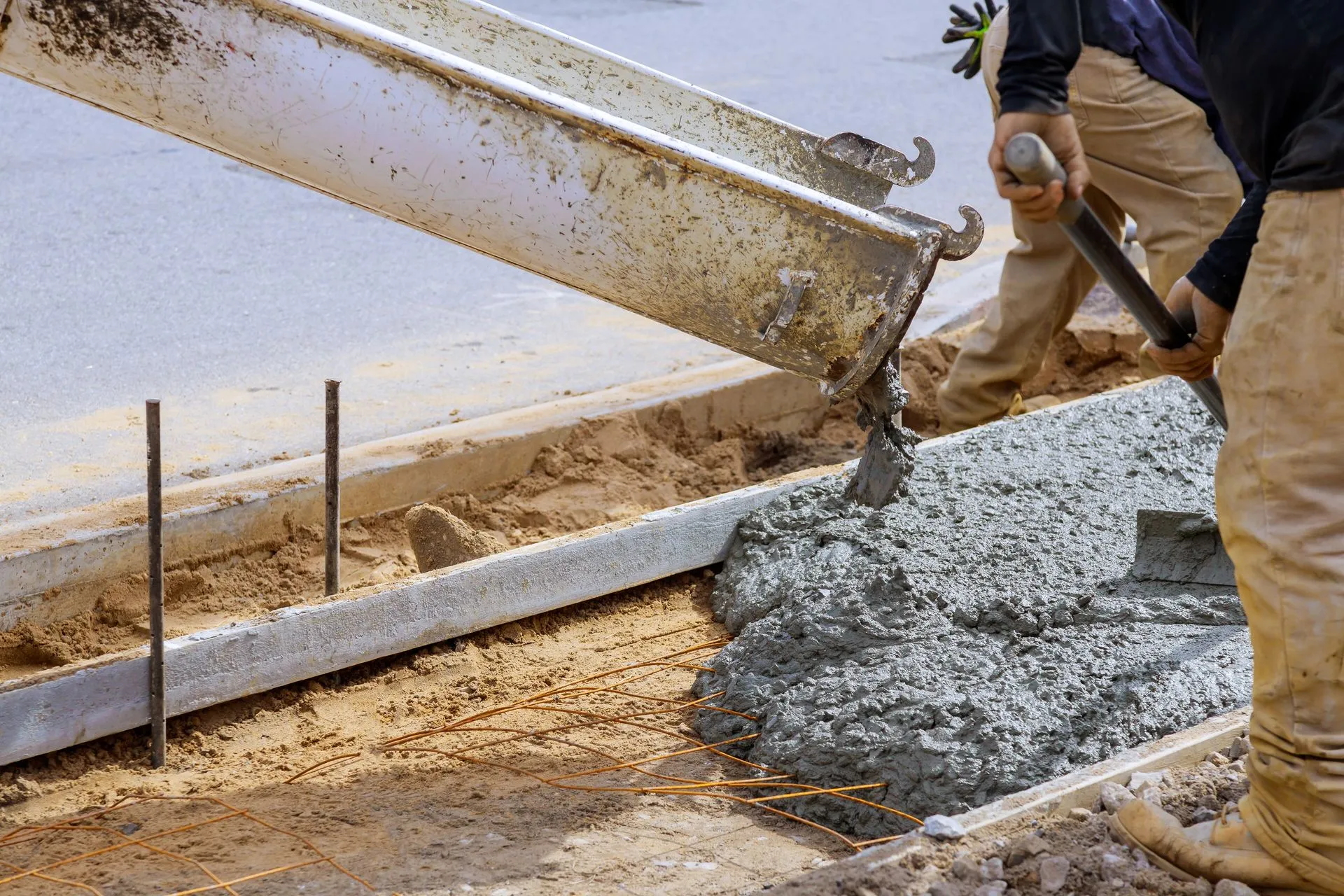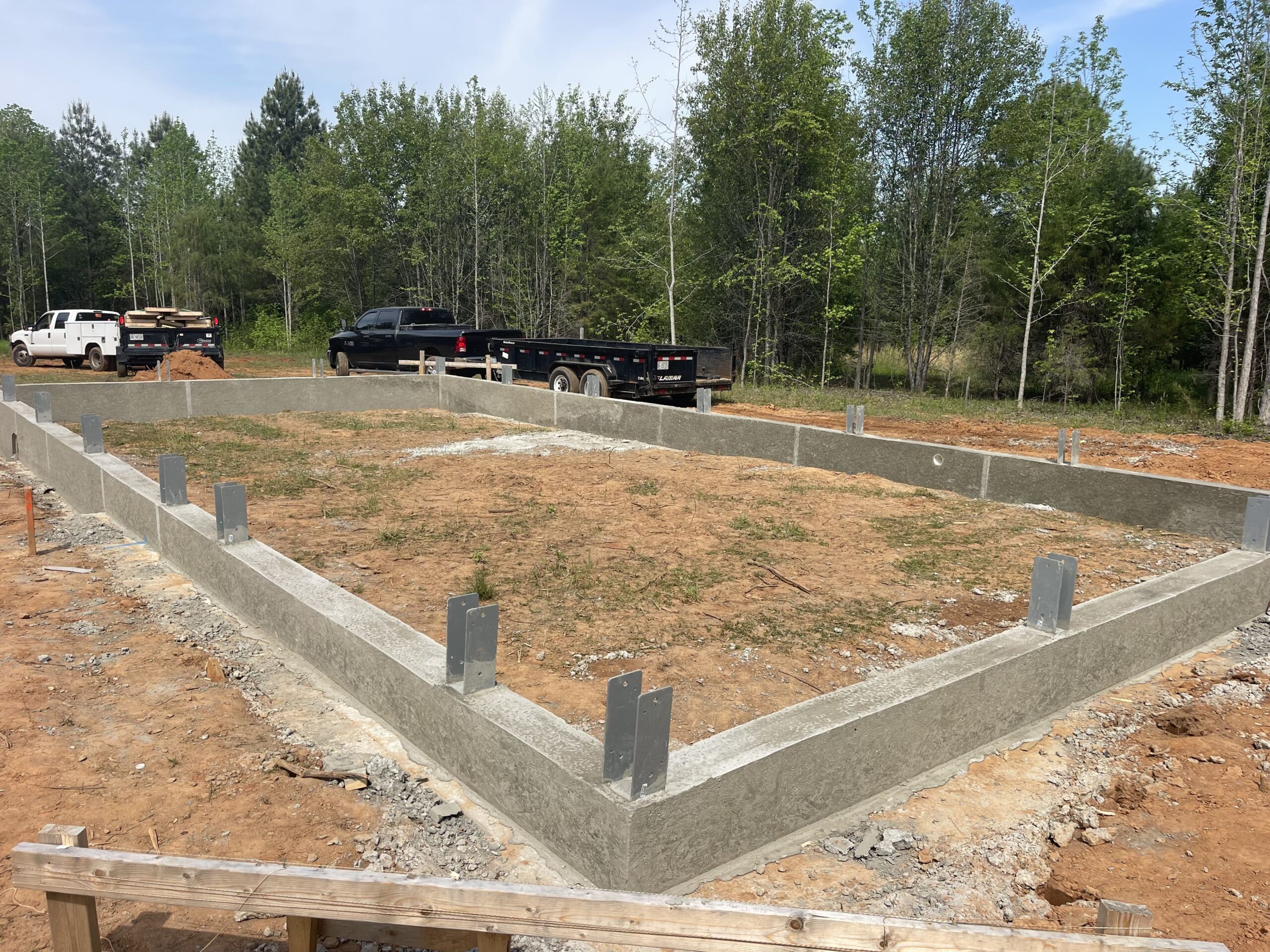When it comes to residential or commercial construction, the most important element often lies
beneath the surface. Concrete footings and foundations play a vital role in the structural stability
of any building. While they may not be the most visible feature, they are essential for long-term
durability and safety.
In Charlotte, NC, where the soil composition and seasonal weather shifts vary across
neighborhoods, properly designed concrete footing foundations are particularly important.
Whether you’re planning a new build or repairing an existing structure, understanding how
footings and foundations work can help you make informed decisions.
What Are Concrete Footings?
Concrete footings are the base of a foundation system. They are poured into trenches and
typically wider than the foundation walls that sit on top of them. Their primary purpose is to
distribute the weight of the structure evenly into the soil.
In residential construction, footings are especially important beneath load-bearing walls, columns,and piers. Without proper footings, homes can settle unevenly, causing structural damage over time.
In Charlotte’s clay-heavy soil, footings need to be carefully engineered to handle expansion and
contraction due to seasonal moisture changes.
What Is a Concrete Footing Foundation?
The term concrete footing foundation refers to the combined structure of footings and the
foundation wall or slab. In most homes, the process starts with pouring footings, followed by
concrete foundation walls or a concrete slab.
There are different types of foundations, each requiring different footing designs:
Slab-on-grade foundation: Footings are poured first, followed by a concrete slab.
● Basement foundation: Deeper footings are poured, and then foundation walls are
constructed around a basement area.
● Crawl space foundation: Similar to basement foundations, but with less depth.
The exact footing dimensions and reinforcement requirements are determined by local building
codes, soil type, and the load the foundation must bear.
Importance of Concrete Footings for a House
Having concrete footings for a house is not just about meeting code requirements. Proper footings directly impact how the home performs over time.
Here’s why they matter:
- Load Distribution: They prevent excessive stress on any one part of the structure by
spreading the load evenly across the soil.
● Foundation Stability: They reduce the risk of uneven settling, which can lead to cracks and
structural failures.
● Moisture Resistance: When properly designed, footings can help resist water infiltration
from below the surface.
● Adaptation to Soil Conditions: In places like Charlotte, NC, where the soil can expand and
contract significantly with moisture changes, footings play a crucial role in maintaining
Stability.
Soil Conditions in Charlotte, NC
Soil is one of the most influential factors when designing and installing footings. In Charlotte, a
significant portion of the region sits on red clay soil, which tends to retain water and expand when wet, then shrink when dry.
This movement can place a lot of stress on poorly designed foundations. For this reason, many
concrete footing and foundation systems in Charlotte, NC include deeper footings, additional
reinforcement, or pier support to ensure performance over time.
Key Components of a Proper Footing System
- Depth and Width: The size of the footing must be appropriate for the structure’s load and
the type of soil. Deeper footings are generally more stable in areas with expansive soils.
2. Reinforcement: Steel rebar is often used in footings to provide added tensile strength and
prevent cracking.
3. Formwork and Pouring: Temporary molds (forms) hold the concrete in place as it cures.
Proper mixing, placement, and curing are critical to the integrity of the footing.
4. Drainage: Good site drainage helps protect footings from water infiltration, which is
especially important in areas with clay-heavy soil.
Building Code Requirements in Charlotte, NC
Local building codes in Mecklenburg County and surrounding areas dictate specific footing
requirements. These include:
- Minimum footing depth (usually below frost line)
● Load-bearing capacity based on soil type
● Reinforcement and size specifications
● Inspection protocols during construction
Working with a builder or contractor who understands these requirements ensures your footing
and foundation system meets local standards and performs well over time.
Signs of Foundation Problems
While properly built concrete footings and foundations are designed to last for decades, certain
signs may suggest there is a problem:
- Cracks in foundation walls
● Uneven or sloping floors
● Doors and windows that stick or won’t close properly
● Water seepage into basement or crawl space
These issues may not always be related to footing failure, but they can often be traced back to
movement or instability in the foundation.
Maintenance and Prevention
Once installed, footings and foundations require little ongoing maintenance. However, a few
simple steps can help protect your structure over time:
- Ensure proper grading and drainage around the home
● Install or maintain gutters and downspouts to divert water away
● Avoid planting large trees too close to the foundation
● Address plumbing leaks or water pooling near the house quickly
Conclusion
Understanding the role of concrete footings and foundations is essential for anyone planning to
build, remodel, or maintain a structure in Charlotte, NC. The local soil and climate present
unique challenges, making it important to design footing systems that can handle those variables.
Whether you’re building a new home or repairing an older foundation, knowing the basics of
footing design and installation can help you make confident, informed decisions. Taking the time
to get the footings right sets the tone for a strong, durable structure that will serve your home well for many years to come.



